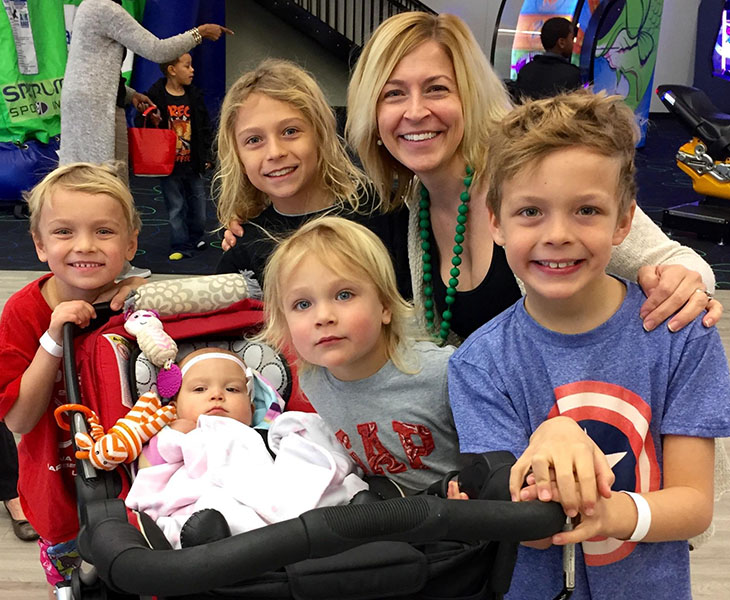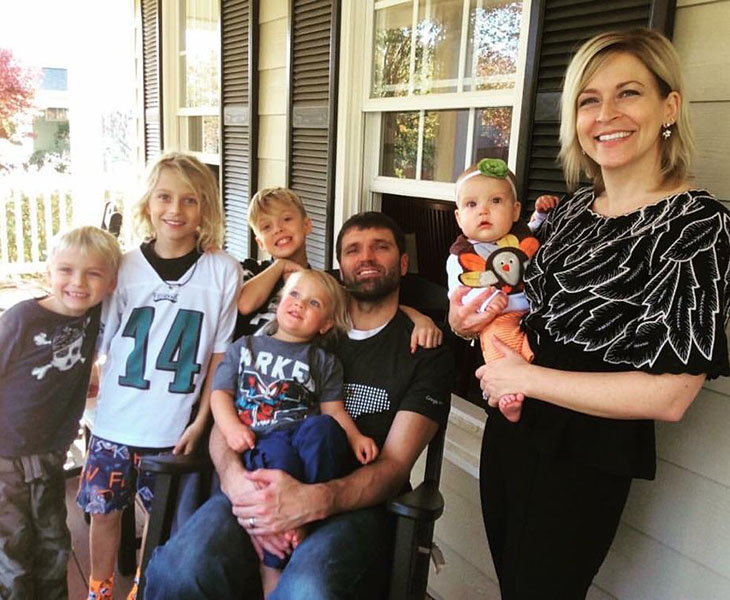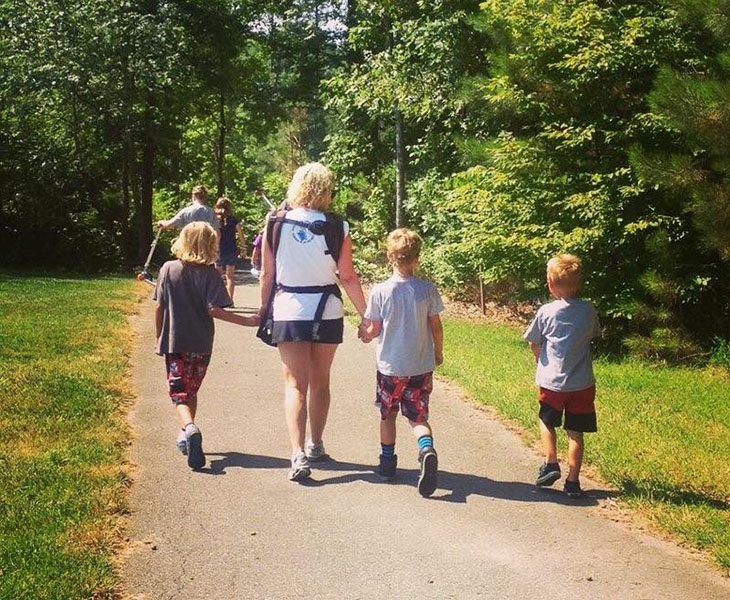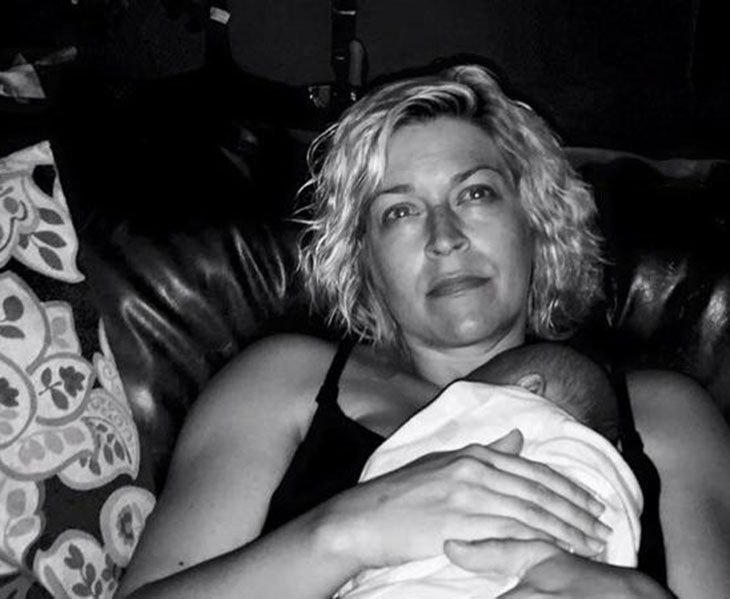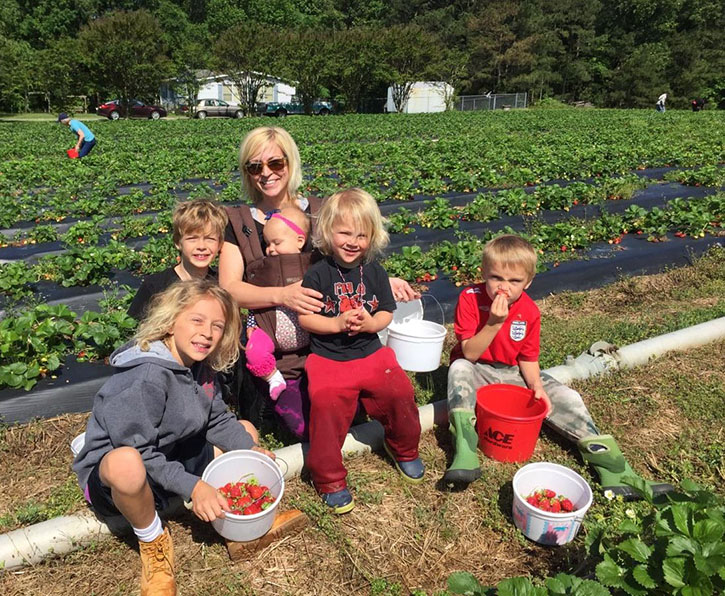Climb out of the Darkness: Raleigh mom shares triumph over postpartum depression
ABC11 Together highlights the strength of the human spirit, good deeds, community needs, and how our viewers can help

RALEIGH (WTVD) -- Leslie Tremlett is a local mother of five. She battled postpartum depression during some of her pregnancies, but said she has overcome it. Now, she is trying to inspire other local moms who may be feeling the same way she did.
Tremlett is the Raleigh climb leader for the "Climb out of the Darkness" event, an event organized across several cities nationally by an advocacy group called Postpartum Progress, and according to the group "it's the world's largest event raising awareness maternal mental illness."
According to the group's research, one in seven moms experience some kind of prenatal mood or anxiety disorder.
Tremlett said she developed severe postpartum depression and anxiety after the birth of her fourth son, Parker, but kept quiet out of fear.
Check out this video from Postpartum Progress on their mission.
THE PAIN
"It was rage," Tremlett said. "I was very angry, and yelling, and lashing out at my older children, at my husband, and I didn't know what was going on."
"I didn't want anyone to know what was going on with me," she recalled. "And I was just seeking bad behaviors, drinking alcohol when the kids were sleeping to numb myself basically, and finally my husband realized, and I didn't really realize.
"I thought I could change myself. He said 'This is beyond that, you need help.'"
"I was terrified of the judgement," she explained. "A lot of people would call me super mom. 'You have it all together. You have this great job. You're a research scientist, you have beautiful children, you have this nice house - there's nothing wrong with you. You're this perfect, you know, you have it all together.'
"And I didn't want anyone to know because I was afraid of the negative judgement and the connotation associated with it, and it was just because I wasn't educated on it. I wanted to keep my facade going that I was doing it all and accomplishing it all and everything was great," she said.
She said she had experienced postpartum during previous pregnancies before, but it was nothing like this, because this time a combination of difficult and tragic events began to take place all at the same time.
"One was that the day that I came back to work from maternity leave, that day within ten minutes of coming into work, I was reassigned to a new position, a new department. We had moved, my family and I moved within Raleigh, but we moved across town," she said.
There were also more difficult changes she didn't see coming.
"My grandmother died and my best friend, who we were pregnant together, her son is one month and one day younger than my son, she committed suicide due to the complications of postpartum psychosis," She said. "And so those traumatic events just one on top of the other, could be the pretty severe postpartum depression and anxiety that I was experiencing lead me to seek treatment at the UNC Women's Mood Disorder Clinic."
SEEKING HELP
Tremlett said she received in-patient treatment at UNC and was able to conquer her depression, anxiety, and grief though treatment.
"They really taught me how to cope better. I was on medication for postpartum depression and anxiety, they regulated those for me and just really helped me learn how to live again," she said.

The treatment was crucial for her, especially when she found out she was pregnant once again.
"Then I got pregnant again with our now daughter and it was not even an issue. My medication was on point, I didn't have any complications, anything like that. I had a very great team that followed me through the whole thing - my OBGYN, my therapist, and my family. It was a great support system."
Now she said her goal is to share her story in the hope of uplifting other moms who may be dealing with the pressures of prenatal mood disorders alone.
Tremlett said she hopes to inspire women to break through the stigma, which was the major obstacle for her.
"I thought my children wouldn't get, my older children, wouldn't get play dates anymore because moms would say 'oh, there's that crazy mom,' or 'there's that crazy lady. We don't want her kids over there,' and so you just feel very shameful. I did anyway," she shared.
She said she feels more people would be willing to seek treatment for mood disorders if people viewed the importance of seeking mental health treatment when needed in the same manner they view other medical health treatment.
"If I had a broken leg or something tangible, something visible that someone could see, an illness, that would be different, but this is something that is just so, it's so stigmatized and you feel like a failure," she said.
CLIMB OUT OF THE DARKNESS
Now she's part of a peer group of "warrior moms" with Postpartum Progress, the organization behind Climb out of the Darkness and said she hopes mom's who need help breaking away from the stigma will come join them.
"You may feel your days are long, you're in solitude, you're by yourself, but you're not," she said. "We are trying to just raise that awareness, celebrate the fact that we are moms - we may have struggled, but we're here and we are doing a good job. You're doing a great job. Join us, celebrate, get resources."
The Climb out of the Darkness event is Saturday June 18 at Baileywick Road Park in Raleigh. It starts at 9 a.m. with Zumba followed by a walk that's less than one mile long at 9:30 a.m., and will include info booths for more resources.
"We're just going to have a little party and celebrate and raise the awareness," Tremlett said.
Register for the Climb out of the Darkness here.
Check out this video of a previous Raleigh Climb out of the Darkness event.
According to Postpartum Progress, the 2016 goal is to raise more than $300,000 to support Postpartum Progress. As of May 24, $173,000 has been raised.
The organization's founder said it's all about shedding light on maternal mental health.
"Each and every one of our Warrior Moms is an inspiration," said Katherine Stone, founder of Postpartum Progress. "This Climb event lets us celebrate them - and empower them - while reaching out to new moms who may be suffering. Every single day, we are one step closer to erasing the stigma associated with postpartum depression and anxiety disorders. It's these powerful women who are making a difference."


